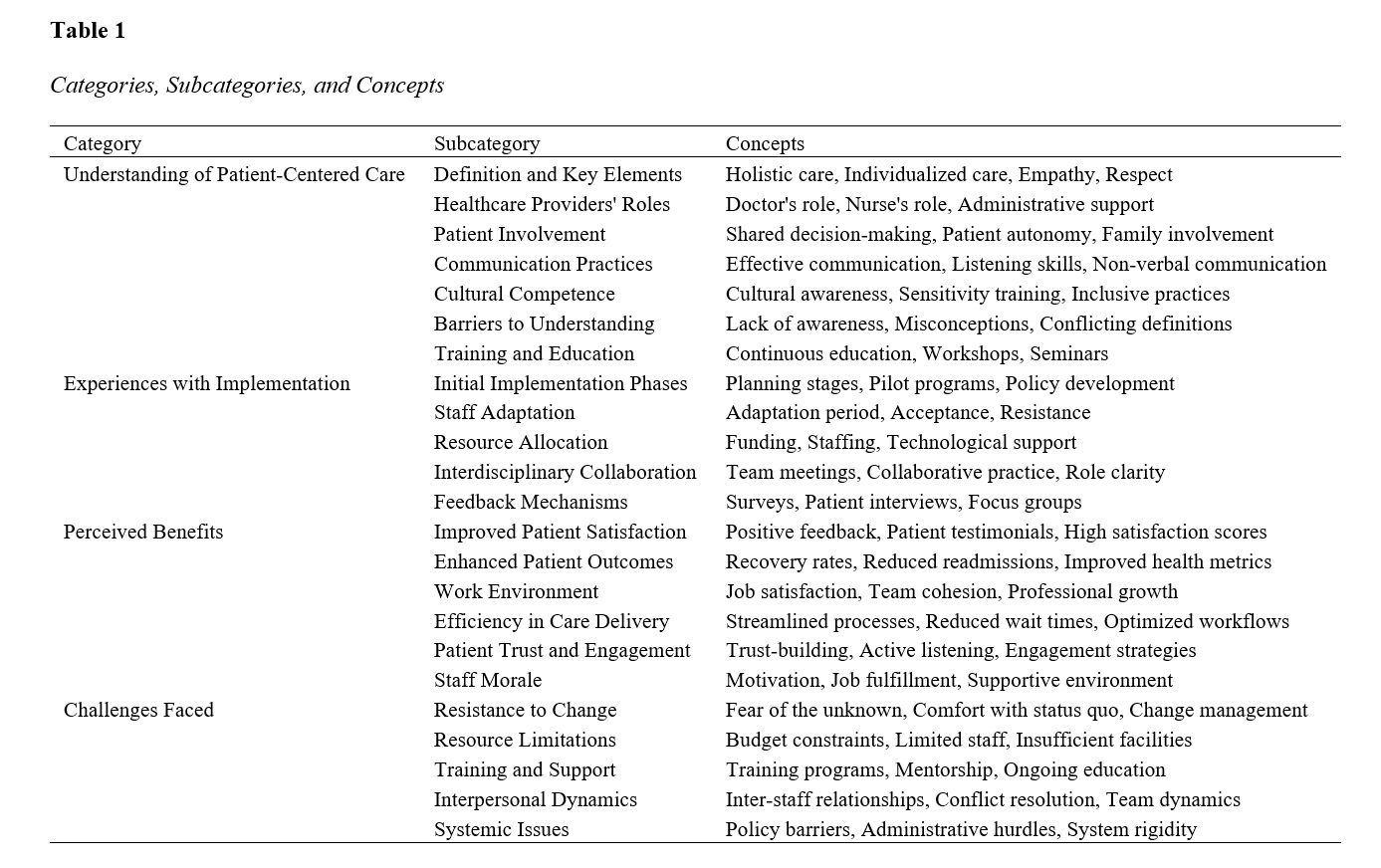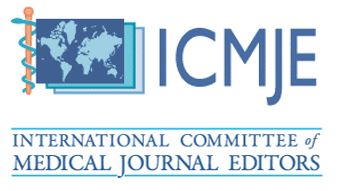Healthcare Providers' Perspectives on the Implementation of Patient-Centered Care Models in Hospitals
Keywords:
Patient-centered care, healthcare providers, qualitative research, hospital care models, implementation challenges, benefits of PCC, thematic analysis, NVivo, holistic care, interdisciplinary collaborationAbstract
This study explores healthcare providers' perspectives on the implementation of patient-centered care (PCC) models in hospitals. It aims to identify key themes related to understanding, experiences, perceived benefits, and challenges associated with PCC to inform better practices and policies. A qualitative research design was employed, utilizing semi-structured interviews to collect data from 21 healthcare providers, including doctors, nurses, and administrative staff, in various hospitals. Participants were selected through purposive sampling to ensure diverse perspectives. Data collection continued until theoretical saturation was achieved. The interview data were transcribed and analyzed using NVivo software, following a thematic analysis approach to identify and refine key themes. The analysis revealed four main themes: understanding of PCC, experiences with implementation, perceived benefits, and challenges faced. Providers described PCC as holistic, individualized care requiring effective communication and cultural competence. Implementation experiences highlighted the importance of planning, resource allocation, interdisciplinary collaboration, and feedback mechanisms. Benefits of PCC included improved patient satisfaction and outcomes, better work environments, efficiency in care delivery, patient trust, and enhanced staff morale. Challenges encompassed resistance to change, resource limitations, training and support deficiencies, interpersonal dynamics, and systemic barriers. The study underscores the critical role of comprehensive training, effective communication, and adequate resources in implementing PCC. Despite significant challenges, the benefits of PCC for patients and providers are evident. Addressing implementation barriers through continuous education, supportive policies, and robust feedback mechanisms can enhance the adoption and sustainability of PCC models. Future research should focus on expanding sample diversity, quantitative measures, and the impact of technology on PCC.
Downloads

Downloads
Additional Files
Published
Submitted
Revised
Accepted
License
Copyright (c) 2024 Oriana Piskorz-Ryń, Geoffrey Olsen (Author); Valerie Karstensen (Corresponding Author); Daniela Gottschlich (Author)

This work is licensed under a Creative Commons Attribution-NonCommercial 4.0 International License.


























